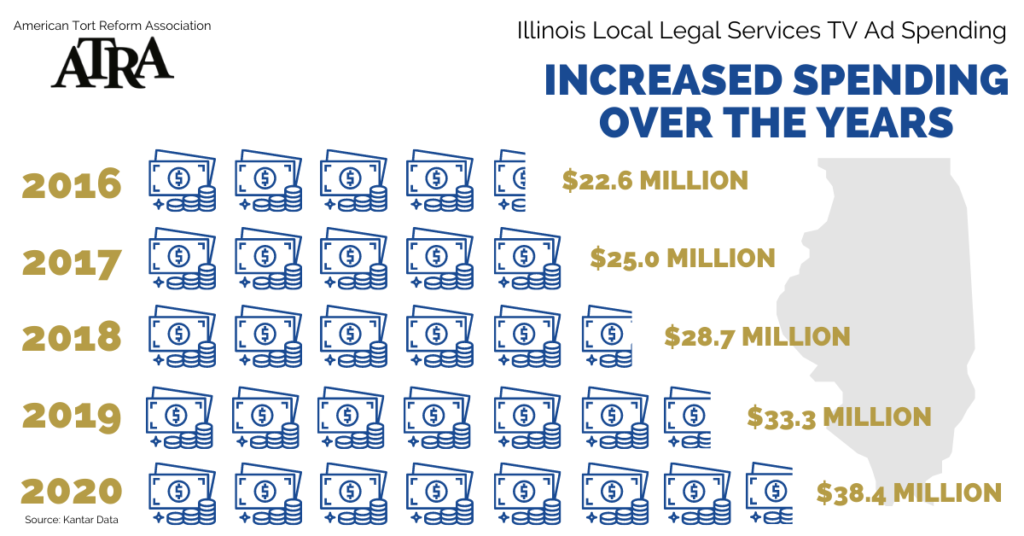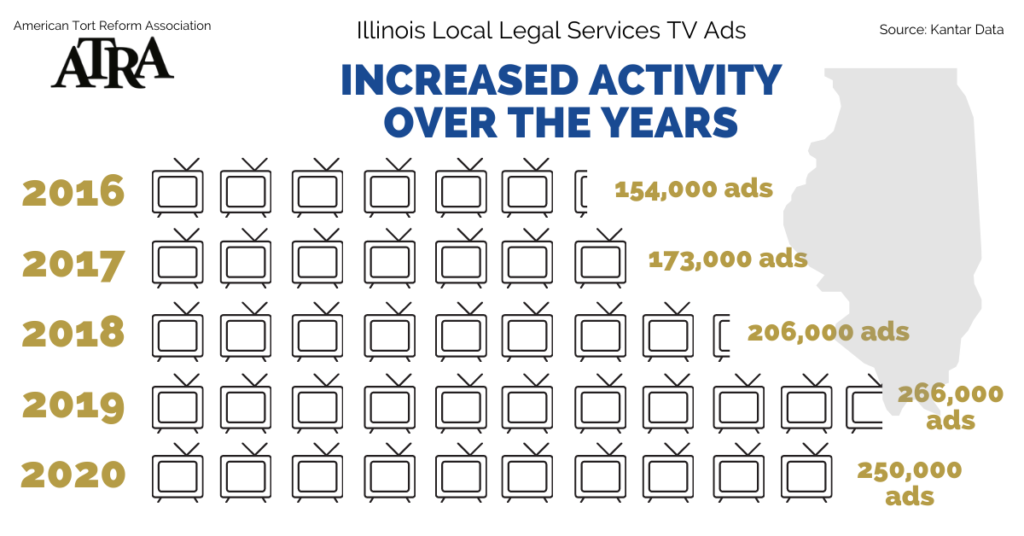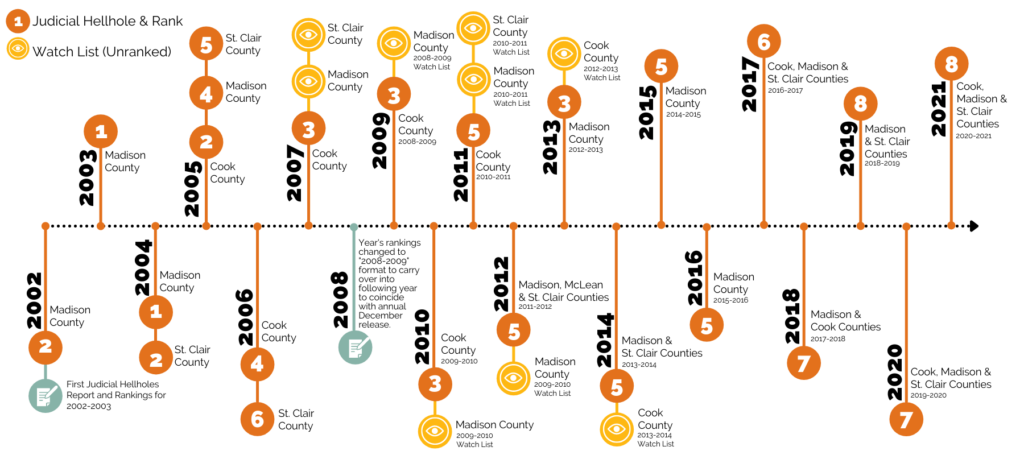Top Recurring Issues
Asbestos Litigation
Illinois continues to be the preferred destination for plaintiffs’ lawyers to bring asbestos lawsuits, with the trio of Madison, St. Clair and Cook Counties leading the way. Plaintiffs flock to these courts thanks to plaintiff-friendly reputations, low evidentiary standards, and judges’ willingness to allow meritless claims to survive.
In 2020, Madison County alone accounted for almost 32% of all asbestos filings nationwide with 1,168 filings, the most of any jurisdiction in the country. St. Clair County came in second, accounting for 11.5% of national filings. Combined, these three counties accounted for 47% of all nationwide asbestos claims in 2020, an increase from only 40% in 2019.
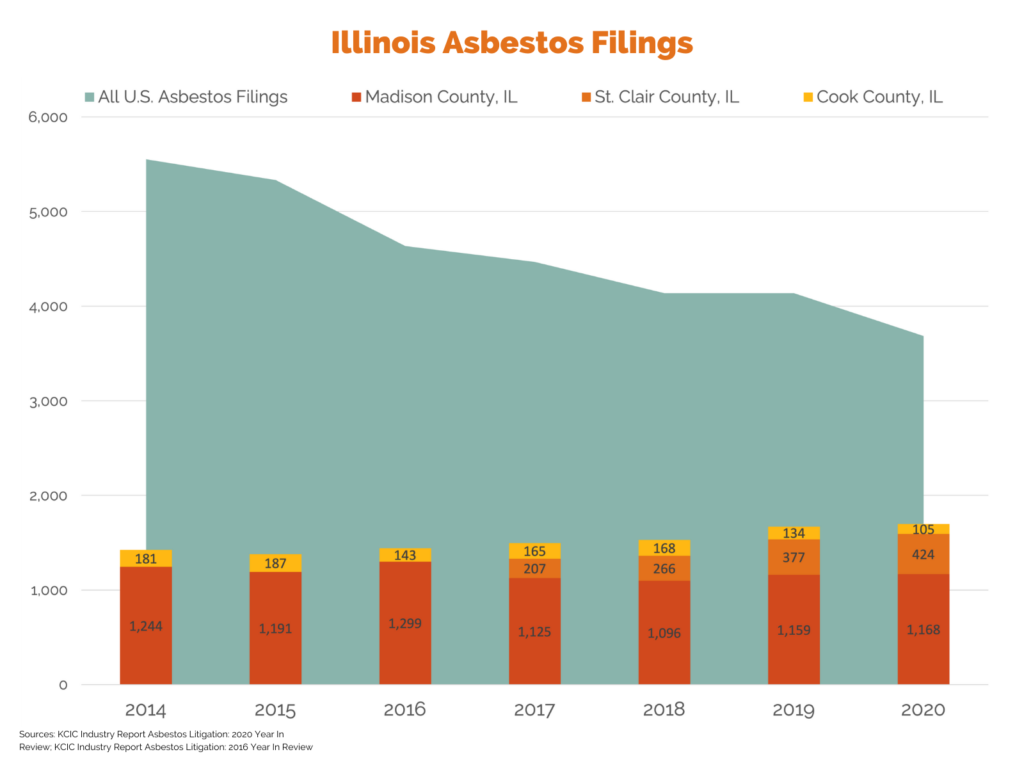
Forum Shopping
While the number of asbestos claims in Illinois is already an issue, the amount of those claims brought by non-residents is shocking – when looking at complaints including plaintiff address information, only 3% of all plaintiffs in 2020 had an Illinois address.
No-Injury Lawsuits
Biometric Information Privacy Act (BIPA)
Illinois lawmakers enacted the Biometric Information Privacy Act (BIPA) in 2008, but it lied dormant until 2015 when plaintiffs’ lawyers discovered its business potential.
BIPA provides a private right of action to a person whose fingerprint, voiceprint, or hand or facial scan, or similar information is collected, used, sold, disseminated or stored in a manner that does not meet the law’s requirements.
The number of BIPA class actions surged from just 6 in 2015 to 161 in mid-2019.
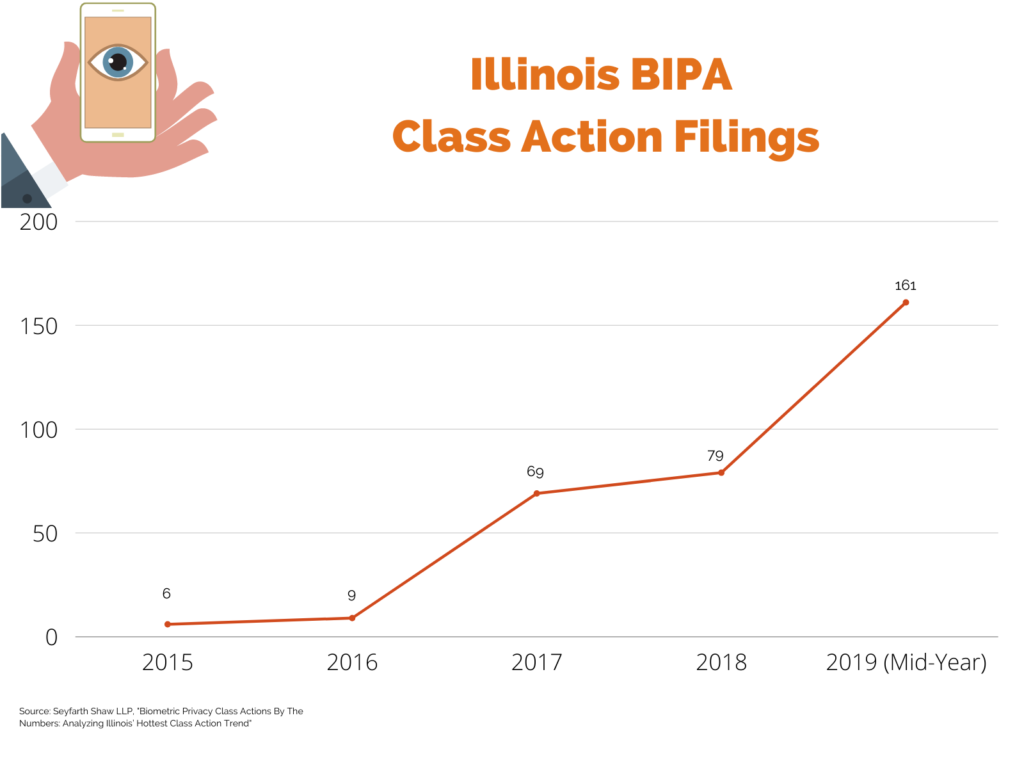 BIPA requires companies to inform an individual in writing and receive a written release prior to obtaining or retaining his or her biometric data. If a company fails to follow this procedure or meet other requirements, then any “aggrieved” person can seek the greater of $1,000 or actual damages for each negligent violation, and the greater of $5,000 or actual damages for each violation they allege was recklessly or intentionally committed.
BIPA requires companies to inform an individual in writing and receive a written release prior to obtaining or retaining his or her biometric data. If a company fails to follow this procedure or meet other requirements, then any “aggrieved” person can seek the greater of $1,000 or actual damages for each negligent violation, and the greater of $5,000 or actual damages for each violation they allege was recklessly or intentionally committed.
In January 2019, the Illinois Supreme Court issued its long-awaited decision in Rosenbach v. Six Flags Entertainment. The Court found that a plaintiff does not need to have suffered actual harm to maintain and win a lawsuit filed under BIPA.
Following this decision, BIPA lawsuits were brought against several companies, including Walmart and Whole Foods by employees. It’s commonplace for employees to clock in using fingerprint scanners, and employees can recover civil penalties simply because the company doesn’t properly notify employees before their fingerprints or handprints are scanned – even if there is no real world harm.
State Trial Bar Campaign Donations
Illinois’s powerful trial bar has long intervened in the state’s political processes, ensuring that the already plaintiff-friendly jurisdictions only become more friendly to these attorneys’ pockets. Despite the Illinois Trial Lawyers Association claiming more than 2,000 members as of 2016, all major contributions to its PAC come from lawyers and law firms in the trio of Cook, Madison, and St. Clair counties.
While other states have looked to enact civil justice reform, Illinois’s legislature and judiciary have continued to expand liability, likely amid pressure from the trial lawyers who consistently fund the election of plaintiff-friendly lawmakers.
From 2001 to 2016, trial lawyers contributed more than $35 million to campaigns of Illinois office seekers. These contributions largely funded Governor J.B. Pritzker’s 2018 election, and once he took office, the floodgates opened and the legislature looked to expand liability wherever it could.
Illinois jurisdictions have even seen plaintiffs’ lawyers be elected to state attorney offices. In 2016, Cook County elected Kim Foxx as its state’s attorney. Foxx had previously done legal consulting work for a personal injury law firm that had filed numerous lawsuits against the county government she now defends. The firm also contributed $18,500 to her campaign, but Foxx refused to acknowledge the obvious conflict of interest and refused to disclose any other personal injury firms she may have worked with in the past.
Cook County is also frequently criticized for its judges deemed unqualified by the bar who rarely lose reelection bids. In 2014 and 2015, all of the county’s judges were retained. Many of these judges are deemed unqualified by the bar, but voters continue to reelect them. In 2012, voters even retained a judge who was declared legally insane.



